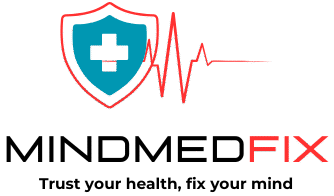 Mental Health Nursing:
Mental Health Nursing:
Dear reader, welcome to our guide, the complete guide for mastering the basics of Mental Health Nursing—a subject as essential on paper as it is in practice. If you are a prospective nursing student preparing for the NCLEX, or a seasoned healthcare employee needing a guide, the following is packed with the information, guidance, and strategies you’ll need for giving caring, competent care.
Why Mental Health Education Matters:
Mental health nursing is not exclusively for psychiatric nurses—it is for all nurses. Emotional distress, as well as responses of stress, are part of being human, and all specialties of patients can have them. Mental health education is, therefore, essential for all nurses. But at its core, there are “psych” nurses, all nurses
Mental Health vs. Mental Illness What Is Mental Health? Mental health is not the absence of illness. It is about:
Healthy coping mechanisms Changing with the times The fulfillment of responsibilities What is Mental Illness? Mental illness is marked by: Maladaptive responses to stress Inadequate behaviors or feelings Troubled relationships and obligations Brain disorders that impact behavior ⚠️ Take note: Cultural norms can influence behavior. Not everything abnormal is psychiatric illness.
Identify Common Signs
There are several common signs of mental illness:
- Hallucinations and delusions
- Mania, or rapid mood swings
- Overanxiousness
- Scattered thoughts
- Incongruent affect (laughing while receiving bad news)
- Sleep disturbances
- Disorientation (not being able to know time, place, or person)
Learn the DSM-5
The Diagnostic and Statistical Manual of Mental Disorders, Edition 5, referred to as DSM-5, is the reference standard for diagnoses of mental disorders.
It first became available back in 1952 and is currently on its 5th edition, still a must-have for psychiatric assessments.
Know Your Patient’s Rights Every patient is entitled to: Refuse treatment Informed consent Visitors and communication Respect and dignity Least Restrictive Environment (avoid restraints only when absolutely necessary)
Theoretical Models of Mental Health Prior to taking the NCLEX, ensure you study: Psychoanalytic Theory Stages of Personality Growth (Erikson) Object Relations Theory Moral Growth (Kohlberg)
Common Therapies & Treatments
Medications (Psychopharmacology)
- Antianxiety drugs
- Mood stabilizers
- Sedatives & hypnotics
Other Treatments
- Electroconvulsive Therapy (ECT)
- Cognitive and Behavioral Therapy
- Complementary therapies (like acupuncture, meditation, massage)
Example of Nursing Diagnoses:
Risk for Injury Issue: Risk of injury caused by self-injurious behaviors, delusions, and hallucinations, as well as substance abuse.
Interventions: Evaluate orientation (person, place, time) Eliminate hazardous objects Assess drug history Enforce safety measures Evaluation: The patient is not exhibiting self-harm. Verbal and nonverbal communication reflect enhanced stability
The Nursing Process (ADPIE) Recall the acrostic ADPIE: Assess Diagnose Plan Implement Evaluate
Imagine an apple pie marked “AD”—you will never confuse ADPIE again!
Milieu Therapy And Nurse Responsibilities As a mental health nurse, you shall: 
Ensure a secure and organized environment Establish healthy boundaries Stay neutral Prevent the use of dismissive language (e.g., “crazy,” “insane”)
Therapeutic Communication Do:
Actively listen Be compassionate Spread hope Use silence to provide patients with space for reflection Don’t:
Provide unsolicited opinions Ask the patients to clarify themselves Argue or show frustration
Prioritization of Nursing Interventions Prioritize safety while responding to NCLEX-style questions.
Example: A patient admitted after attempting suicide—your priority is Risk for Injury, even though there are other diagnoses that may apply.
Test-Taking Tips for the NCLEX
Always adhere to the nursing process: Assess → Diagnose → Plan → Implement → Evaluate. In doubt, select assess rather than implement. Among two responding choices, select the one for life-threatening issues. Where there are two opposites, one of them is probably correct.
Final Thoughts:
Final Thoughts Mental health nursing is a fulfilling, essential specialty that involves clinical practice, compassion, and cultural awareness. While you study for your exams, or as you pursue continuing education, recall: ✨ Each nurse is a mental health nurse.
Prioritize safety, be empathetic, and respect the dignity of each patient.


